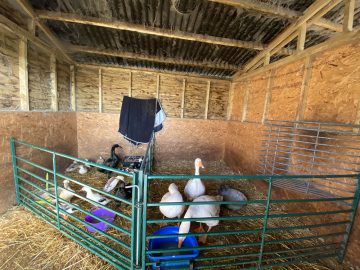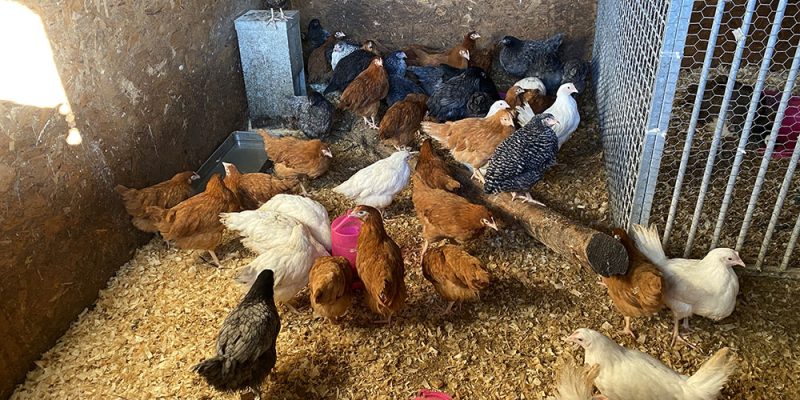Avian influenza, often referred to as bird flu, is a highly contagious disease among birds. The flu can also affect humans and other animals. The disease occurs naturally amongst wild waterfowl but can spread to domestic birds. The flu spreads via direct contact with an infected bird (dead or alive) or its faeces. This follows from nationwide outbreaks of bird flu where the government orders are to cull a flock for even one infectious case.
How has bird flu affected Bournemouth?
Local Bournemouth farmer, Lucy Phillips of Nick’s Farm has had to keep her 180 free-range birds in stables to prevent any contact with wildfowl. Aquatic birds are isolated from other poultry as they are asymptomatic. The estimate for avian isolation is 3 months indoors until cases decrease. There have also been cases that bird flu can affect pigs. Infected pigs struggle to walk and have joint pains.
Phillips said: “We’ve locked up the birds as all of them are free reign and would regularly come into contact with wild birds. We’re unable to sell any of the eggs, bring poultry on or off of the farm which has affected our business.”

Phillips claims the farm hasn’t received any government advice regarding financial support:
“No advice was given about financial support except for if the isolation was extended for a period of time. We are also ineligible for farm grants as we don’t exclusively keep birds.”
The current government advice is to not touch any dead or visibly sick birds. If you find dead wild waterfowl or other dead wild birds, please report it to the Defra helpline on 03459 33 55 77.


 Single father desperate for a dentist for his daughter
Single father desperate for a dentist for his daughter